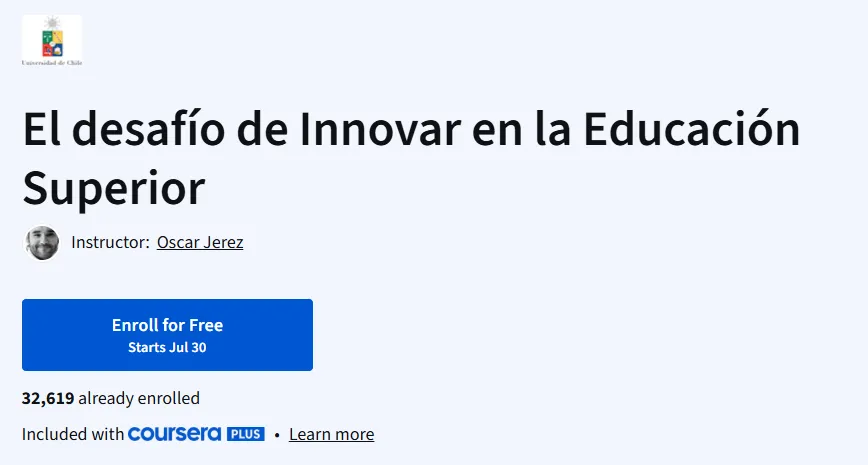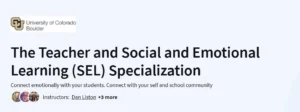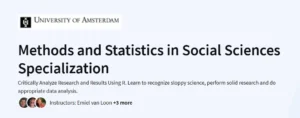What will you learn in El desafío de Innovar en la Educación Superior Course
Understand the historical evolution and current challenges of higher education in Latin America.
Analyze public policies and institutional frameworks influencing universities.
Evaluate equity, access, and quality in Latin American higher education systems.
Explore future trends, innovations, and regional collaboration in higher education.
Program Overview
Module 1: Introducción a la Educación Superior
⏱️ 1 week
Topics: Definition, purpose, and historical development of higher education in Latin America.
Hands-on: Reflection on the learner’s own educational experience.
Module 2: Políticas públicas y gobernanza
⏱️ 1 week
Topics: Public policy models, funding, university autonomy, and regional variations.
Hands-on: Analyze real-world policy frameworks in Latin American countries.
Module 3: Calidad, equidad y pertinencia
⏱️ 1 week
Topics: Access and inequality, accreditation, relevance to societal needs.
Hands-on: Case study review on educational equity.
Module 4: Tendencias y futuro
⏱️ 1 week
Topics: Innovation, internationalization, technology in education, future challenges.
Hands-on: Prepare a personal reflection or proposal for future improvements.
Get certificate
Job Outlook
Valuable for professionals in education, public policy, or university administration.
Increases understanding of regional dynamics, helping leaders shape policy and reforms.
Relevant for roles in Latin America focused on educational planning and institutional development.
Specification: El desafío de Innovar en la Educación Superior
|
FAQs
- Provides insights into regional higher education challenges.
- Teaches analysis of public policies affecting universities.
- Encourages reflection on your own institutional practices.
- Suggests frameworks for equitable and relevant education.
- Offers tools for proposing future improvements and innovations.
- Beginner-level course accessible to anyone.
- Covers foundational concepts in higher education history and governance.
- Explains public policies and institutional structures clearly.
- Encourages practical reflection even without professional experience.
- Certificate completion does not require prior academic expertise.
- Focuses on policy, governance, and institutional innovation.
- Includes case studies of Latin American universities.
- Encourages reflective assignments rather than lesson plans.
- Highlights regional trends in higher education.
- Less emphasis on direct classroom management techniques.
- Offers insights into challenges that can exist worldwide.
- Teaches principles of equity, access, and innovation.
- Case studies provide concrete examples from Latin America.
- Develops analytical skills for education policy evaluation.
- Global learners can adapt ideas to their local context.
- 4-week course with one module per week.
- Estimated 1–2 hours of study per week.
- Includes reflection exercises and case studies.
- Flexible, self-paced access for lifetime learning.
- Certificate awarded upon completion.





